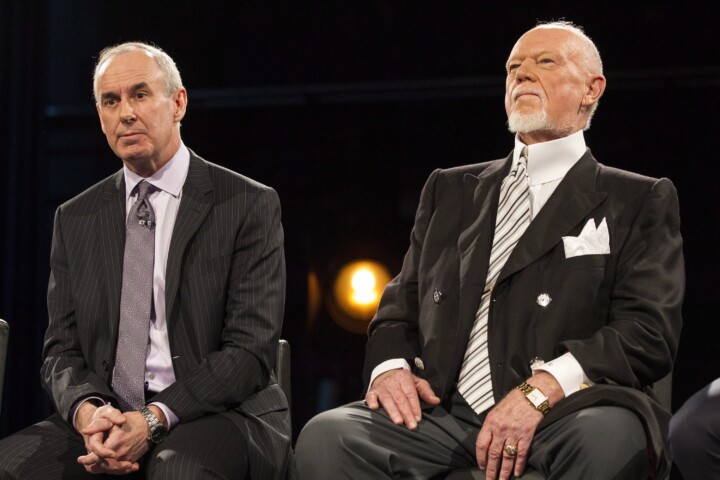The Hub is celebrating its second anniversary by announcing a new team of contributing writers that will be regularly filling our pages with top-notch insights.
Readers can still enjoy the regular schedule of news dispatches, interviews, viewpoints, and, now, a regular rhythm of some of our best contributors. Our readers will be familiar with these writers, either because they are some of the most respected experts in their fields or because they’ve already written some of The Hub’s most popular viewpoints.
Get to know our writers by reading about them below and, before long, you’ll be seeing their insights regularly on our website and our daily newsletter Per Diem.
Amanda Lang, an award-winning business journalist, will bring her experience as bestselling author and leading journalist to exploring the intersections of economics, business and public policy to a bi-weekly podcast and YouTube series at The Hub. We are also looking forward to Amanda’s occasional contributions as viewpoint writer.
Ginny Roth, the national practice lead for government relations at Crestview Strategy who previously worked at Queen’s Park and as party organizer for the Progressive Conservative Party of Ontario, will be writing about culture and governance. Ginny has written popular essays for The Hub on family policy and Canada’s birth rate, empathy for NIMBYs, and how the concept of intersectionality can be useful. Her experience extends from policy and theory to the pragmatic realities of political life, giving our readers a 360-degree view of the issues.
Howard Anglin, a doctoral student at Oxford University who has previously served in key roles in the prime minister’s office and the office of the premier of Alberta, will continue to be The Hub‘s most elegant writer on virtually any topic that occurs to him. Howard has been one of this publication’s most prolific and most-read writers since The Hub launched two years ago, even writing a rebuttal to our founding essay. Howard never fails to surprise. Case in point: his most popular piece in the last year was a top 10 list of non-Christmassy Christmas movies.
Joanna Baron, the executive director of the Canadian Constitution Foundation, a legal charity that protects constitutional freedoms in courts of law and public opinion, will be writing on legal issues for The Hub. Joanna’s ability to illustrate where law and culture collide is unparalleled, such as in this piece about the perils of over-active regulators.
Karen Restoule, the co-founder of BOLD Realities, which works to advance economic reconciliation, will write for us on Indigenous issues. Karen has written popular pieces for The Hub on the dark realities of reconciliation and how to commemorate Canada’s National Day for Truth and Reconciliation. Karen is Ojibwe from Dokis First Nation.
Richard Shimooka, a senior fellow at the Macdonald Laurier Institute, will be our expert voice on defence and foreign policy. In just the last few months, Richard has explained why spy balloons were suddenly being spotted in North America, the political element of the war in Ukraine, and why Canada is far behind in the race for the future of warfare.
Steve Lafleur, a public policy analyst based in Toronto, has written some of his best stuff recently about how Toronto is unlivable. Somehow that struck a chord with our readers. Steve will continue to write for us about housing and economics to which, as a proud neoliberal, he tends to bring rational, market-focused solutions. There’s no better example of that than Steve’s recent piece pointing out the strange logic of plastic bag bans, which quickly became one of more most popular pieces ever.
Trevor Tombe, a professor of economics at the University of Calgary and a research fellow at The School of Public Policy, will continue to help Hub readers make sense of public finances and how it will affect them. Recently, Trevor has explained why homes remain unaffordable despite recent interest rate hikes that drove down prices and, if you’re looking for good news, he laid out why the Canadian Pension Plan is in good shape these days. Trevor even took the time last year to explain why he, and most other economists, were wrong about inflation. That’s exactly the kind of intellectual rigour and honesty that we love at The Hub.
Rounding out the crew of contributing writers is Malcolm Jolley, who has been a regular wine columnist at The Hub for nearly two years. Malcolm offers practical advice, such as which wine to buy for the holidays, but he also makes some fascinating forays into the broader culture. His essay on the “third places,” between work and home, and his tribute to the civil rights lawyer Clayton Ruby are two of his strongest pieces.
Patrick Luciani will also continue to contribute bi-weekly book reviews on Fridays, which will cover politics, history, and culture. Patrick’s defence of Steven Pinker’s rationality, his clear-eyed appraisal of the Cuban Missile Crisis after 60 years, and his sympathetic view of Robert Kagan’s Iraq War regrets are all examples of the kind of balanced wisdom he brings to The Hub.
Jack Mitchell, The Hub’s poet-in-residence, will continue to brighten up our daily newsletter Per Diem with his lyrical and insightful epigrams. Jack is based in Halifax, where he is an associate professor of Classics at Dalhousie University, and his latest book, The Odyssey of Star Wars: an Epic Poem, a retelling of the original Star Wars film trilogy, is available for purchase.
Recommended for You

Sean Speer: Maybe Ron MacLean is the one who needs to go

Laura David: Red pill, blue pill: Google has made its opening salvo in the AI-news war. What’s Canadian media’s next move?

Need to Know: Legacy media has a diversity problem

Brace for impact: something big is about to happen to the news in Canada



